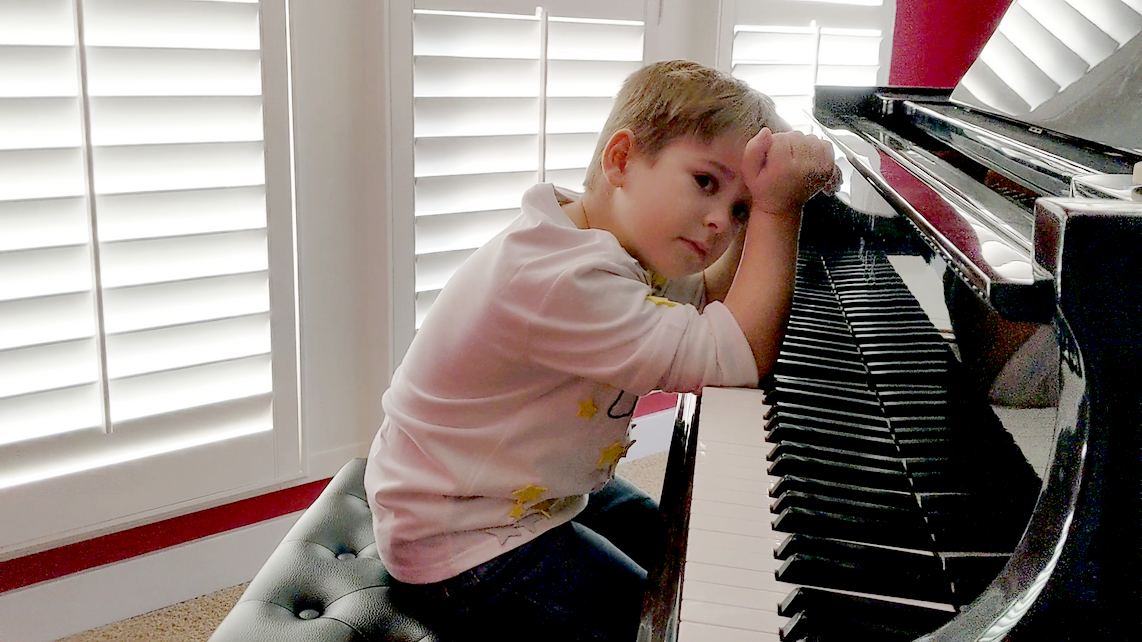
So your child or music student doesn’t practice regularly, at least without a fight? Join the club of millions of parents and music teachers who struggle to motivate music students to practice. But of course, this is no different than the struggle of training children in all aspects of life, from homework to brushing their teeth. Yet, somehow, we get children to do these things. Why is it so different when motivating a child to practice? To find out, let’s find out what is UNmotivating them to practice and do the opposite! Here are 5 reasons students are UNmotivated and how to motivate them.
1. UNmotivation: The student is confused and not progressing.
I believe this is the number one issue for a student not to practice, but the most difficult to detect since some students may not admit they didn’t understand. It’s easier just to ignore it. If a student is constantly confused, they won’t progress, staying at the same level, which is, in itself, frustrating and UNmotivating.
Motivation: Make sure your child or student understands everything taught. As a music teacher, this means asking the students many questions, especially after teaching a new concept, and having them demonstrate it. The assignments need to be clear so the student knows WHAT to practice. As a parent, ask your child to say and demonstrate what they learned in the last lesson and the assignments. If the student cannot, let the music teacher know so they can review it in the next lesson and give clear assignments.
2. UNmotivation: Not enough time
I get it; everyone’s busy, including children, with so many activities they’re involved in. It’s easy for a day to go by without even thinking about practicing. There may be good intentions to practice, but before you know it, it’s the following week’s lesson, and the student has forgotten to practice.
Motivation: Most activities are scheduled, from school, music lessons, sports, and church activities, so why not schedule practices as well? When scheduled, it will become automatic and part of the daily routine. I suggest practicing before or after homework since it’s an extension of learning. If that time frame doesn’t work, pick out a good time that works in everyone’s schedule and stick to that same time.
3. UNmotivation: Too tired or sick to practice
I never suggest someone practice if they’re tired, hungry, or not feeling well. Practicing takes all the student’s mental and physical attention, so practicing when the student is not at their peak is unproductive and will give a negative feeling about practicing.
Motivation: If the student schedules the lessons as suggested previously, it’s ok to skip or reschedule the practice time for those special times when the student is not feeling up to it without any negative consequences. As a parent, tell your child it’s ok to skip or reschedule until they’re feeling better.
4. UNmotivate: Not interested
Not every child or student will want to learn to sing or play an instrument. Some students love learning music, and others don’t. What do you do with a child who has no interest in learning music?
Motivation: I believe that music lessons are for EVERY child, whether they have a desire to learn or not. Why? Because there are so many things music lessons teach children that go far beyond just learning music. Studies have shown that music lessons enhance a child’s education in almost all academics. It teaches a child to stick with something through the challenges, which is a great life lesson. As mentioned earlier, it teaches a child how to manage their time. It also gives children confidence when they’ve learned to play or sing, which will stay with them in their lives, regardless of their chosen occupation. Since you want your child to experience all the things music lessons offer, suggest a time frame for staying with the lessons before deciding whether to continue or not. Since it can take up to a year for a beginner to get beyond the beginning basics, that is a reasonable time frame to offer your child. Then, after the time frame is up and they quit, you know it’s due to a lack of interest and not because it’s challenging.
5. UNmotivate: Negative pressure for practicing
It’s easy to instill guilt towards your child or student, sometimes without even knowing it, when they constantly don’t practice. Doing this may only make them feel bad, but it probably won’t entice them to practice more. In fact, they may want to practice LESS. So, what should a parent or teacher do to entice a student to practice?
Motivation: Instead of making students practice, make them want to practice. Instead of guilting them when they don’t practice, reward them when they do practice. Rewarding a student works exceptionally well for a young student who may struggle with the discipline of practicing. What child doesn’t love rewards? I give points to my students for every practice and assignment passed, with a prize after so many points. Parents can also devise their own point and reward system that works best for their child. This system can also be used as a consequence of not practicing, where they can “lose” points or rewards. Watch how quickly a child will practice if they think they’re losing a reward!

2 Responses
This is Wonderful Kathi, Thank you!
You’re welcome! Glad to help to motivate students to practice! Thank you for commenting.